Following The Film Stage’s collective top 50 films of 2022, as part of our year-end coverage, our contributors are sharing their personal top 10 lists.
2022 was the year I had to recalibrate my relationship with cinema and television. Like Brendan Gleeson’s exasperated Colm in The Banshees of Inisherin, a man nearing the end of his life and done wasting his energy on natterers, post-pandemic life has me questioning how much time I have left on this earth to devote to art that simply doesn’t appeal to me. As a maximalist consumer by nature, I’ve spent my first 34 years watching anything and everything to stay sharp on what’s buzzing in the zeitgeist. I’m getting tired. And maybe, just maybe, the omnicrises of the early 2020s are pushing me toward shows and movies that uplift me in some way. That’s probably why I gravitated toward family films, romantic comedies, funhouse mirror traumaramas, and historical epics this year more than any other. Heck, even my TV top 10 is filled with sensitive fare like Single Drunk Female, Yellowjackets, My Brilliant Friend, and Becoming Elizabeth. In the words of Maliibu Miitch, “I like what I like.” No guilty pleasures, friends. Just pleasure.
Without further ado, the best movies I watched in 2022:
Honorable Mentions: The Lost City, Father of the Bride [2022], Fire Island, Three Thousand Years of Longing, Prey
Best older films I watched in 2022:
A Taste of Honey (1961), Ali: Fear Eats the Soul (1974), The Decline of Western Civilization trilogy (1981-1998), Born Yesterday (1950), Lilo & Stitch (2002), The Castle of Cagliostro (1979), Wide Sargasso Sea (1993), Gothic (1986), Heidi (2015), The Year of Living Dangerously (1982)
10. The Whale (Darren Aronofsky)
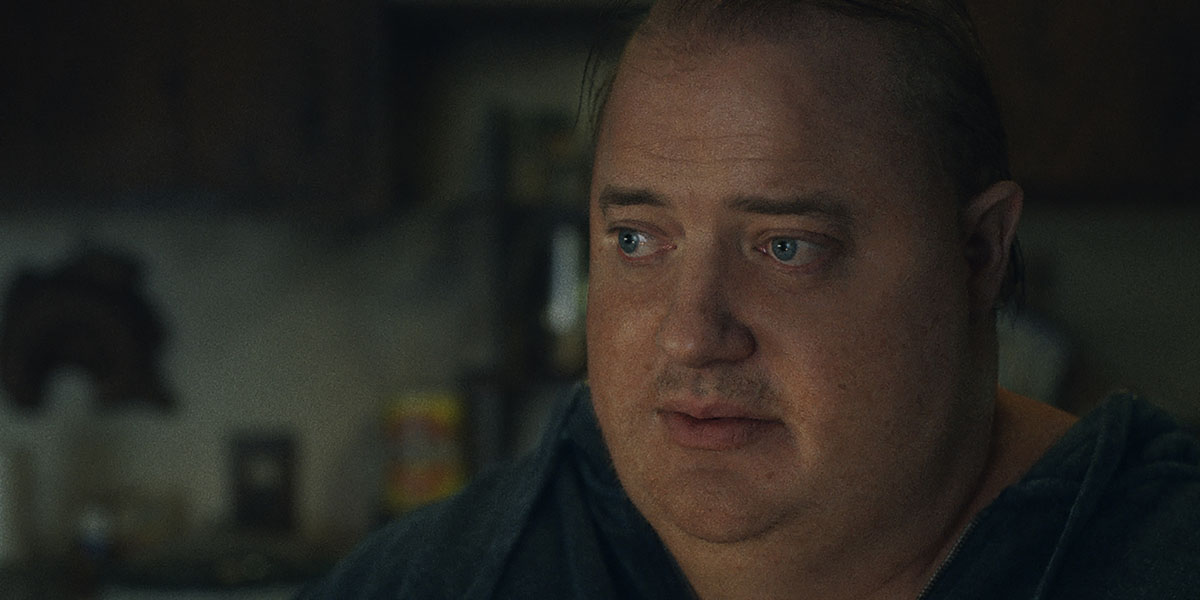
The Whale is grotesque and exploitative and histrionic and manipulative and triggering. I think I loved it. Like 2019’s Joker, it’s a film that moved me to tears but I’m not exactly sure I could recommend it to others in good conscience or even watch it again myself. How much you’re able to take away from this stagy (duh) adaptation of Samuel D. Hunter’s play about a self-hating and reclusive 600-lb gay man trying to reconnect with his termagant teenage daughter before he dies is proportional to how much you’re able to accept the heightened-to-eleven emotionality on screen. I don’t think most audiences can––but I couldn’t look away. Brendan Fraser’s endearing performance is buttressed by a talented supporting ensemble that includes Hong Chau, Sadie Sink, Samantha Morton, and Ty Simpkins. We’re at Peak Aronofsky here, for better or for worse.
9. Funny Pages (Owen Kline)
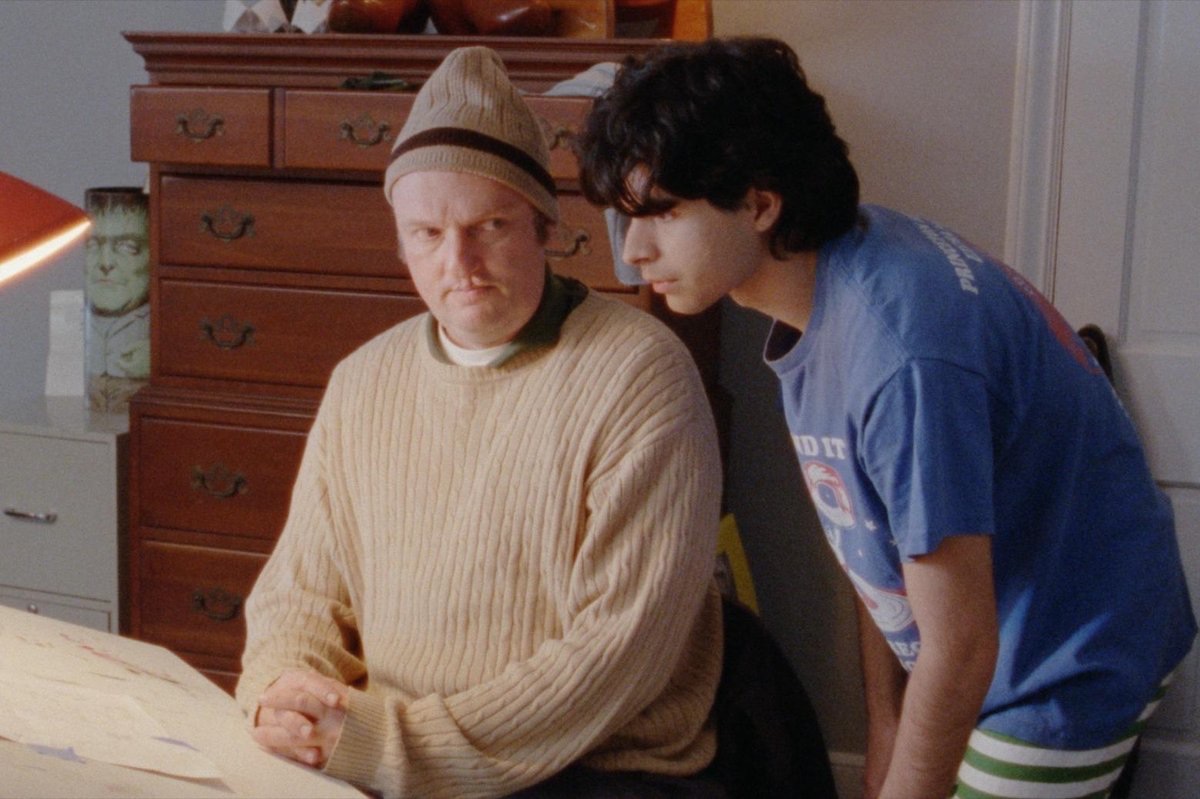
Every year there’s one movie that sneaks up on me months after watching it. Funny Pages may be the sweatiest, stinkiest, most stress-inducing film you’ll ever watch, and you’ll be happy about it. Daniel Zolghadri plays a pushy, privileged teen who dreams of being a cartoonist, but the weirdo script buzzes largely thanks to an offbeat supporting cast. Standouts include Stephen Adly Guirgis as a larger-than-life art teacher, Miles Emanuel as a geeky deadpan BFF, Marcia Deibonis as a cheeky public defender, and Michael Townsend Wright and Cleveland Thomas Jr. as the illegal basement apartment roommates from hell. But Matthew Maher, playing an unstable former comic book colorist our protagonist tries coercing into mentorship, is the crown jewel creep of them all, his jittery vulnerability like an R. Crumb sketch unwillingly cursed into life.
8. Guillermo del Toro’s Pinocchio (Guillermo del Toro and Mark Gustafson)
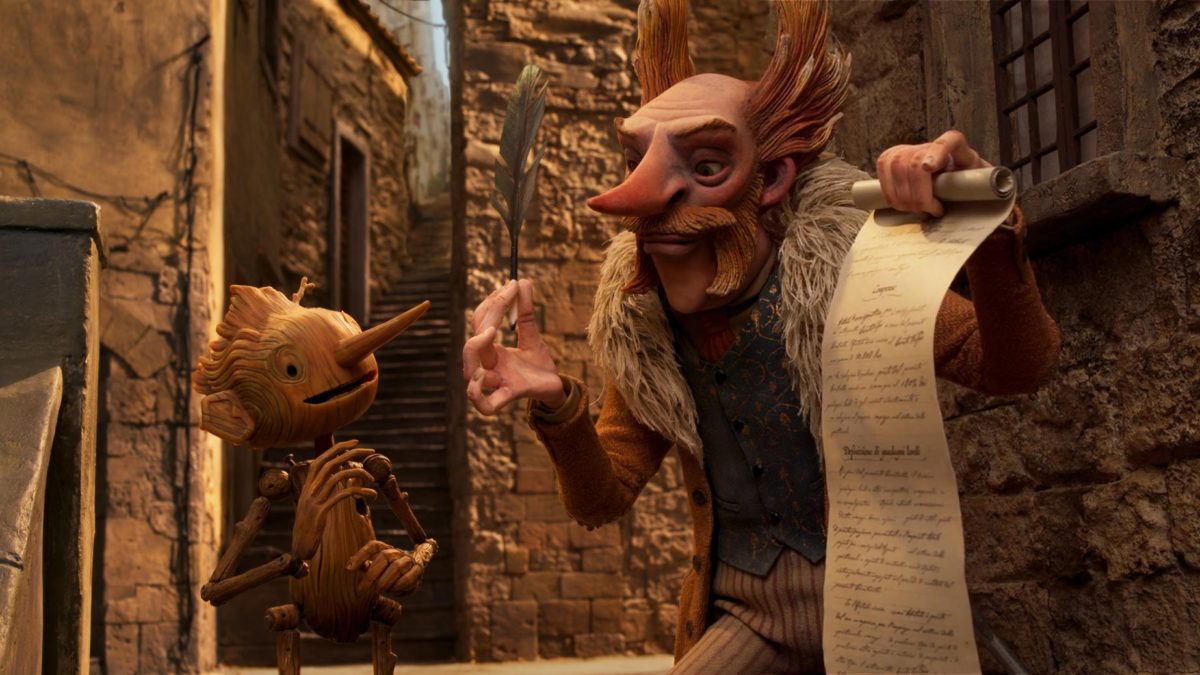
I’ve seen a lot of Pinocchii in my time. I’ve read the 1883 novel by Carlo Collodi. I’ve even been to the dusty Pinocchio theme park in Tuscany where Collodi took his pen name. What sets Guillermo del Toro and Mark Gustafson’s mordantly macabre stop-motion musical apart from the sanitized Disney versions and the darkly surreal live-action varieties (such as Matteo Garrone’s delightful 2019 adaptation) is the Christ allegory. No, really. In this Pinocchioverse, set in 1920s Fascist Italy, our puppet boy is killed and resurrected so many times it becomes a joke—but he ultimately elects mortality to become a savior. Ya know, fun for the whole family!
7. Marcel the Shell with Shoes On (Dean Fleischer-Camp)
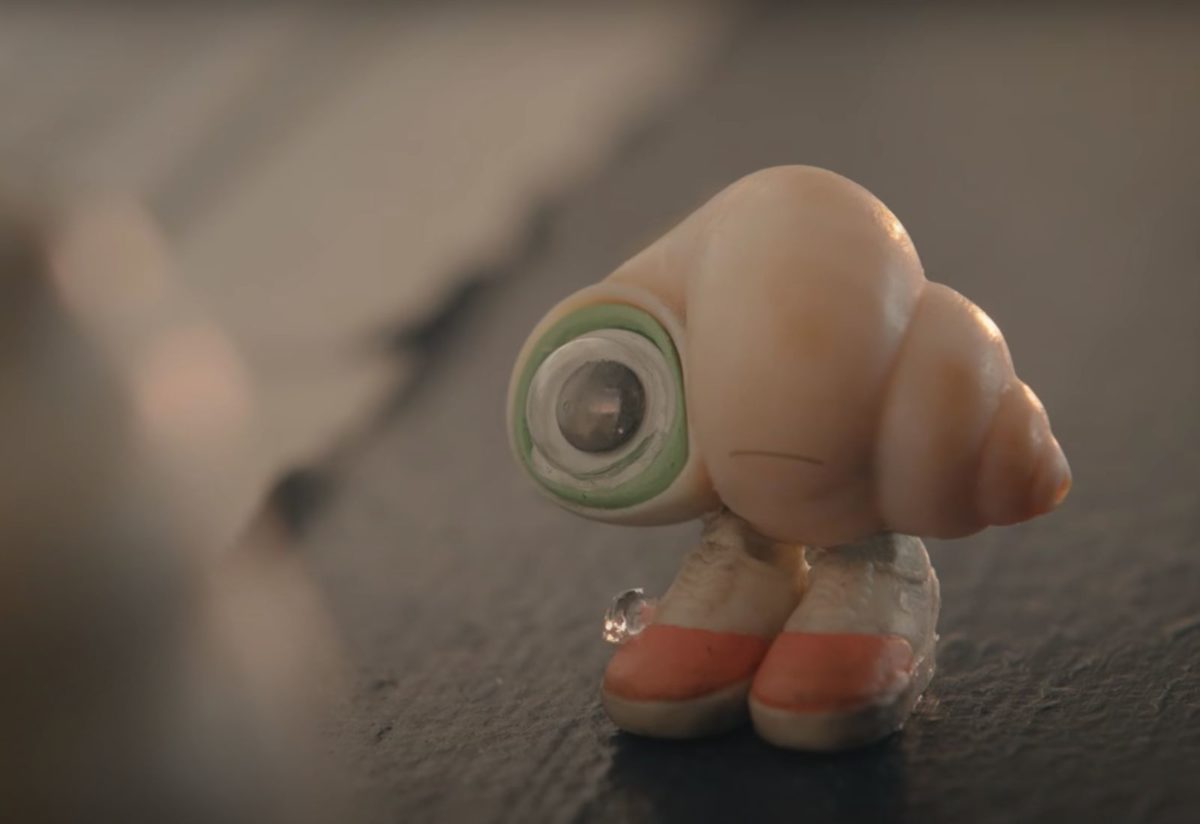
Call me a sucker for existential animated films. Based on the series of 2010 stop-motion shorts about a craggy-voiced little shell who’s content with the miniaturized world of found objects he’s fashioned for himself, Marcel the Shell with Shoes On is twee as can be… and surprisingly, wonderfully melancholic. In this fleshed out feature film, Marcel (Jenny Slate) squats with his senescent grandmother (Isabella Rosselini) in a human-sized house they’ve jerry-rigged to work for their one-or-two-inch tiny shell bodies. One day, a documentarian (director Dean Fleischer-Camp) who’s Airbnbing the house moves in and uncovers the traumatic backstory of why these two shells live such an isolated existence. For as wistful as the film is, it’s also funny, playful, and chock full of subtle visual gags.
6. Elvis (Baz Luhrmann)
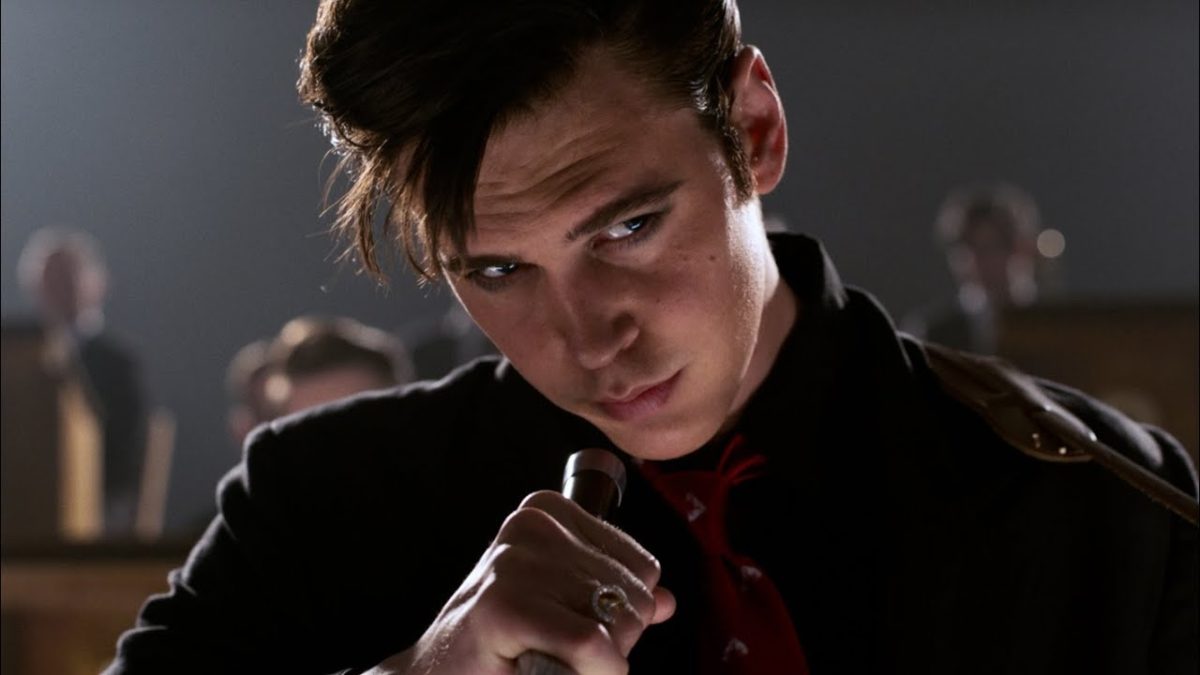
I’m pretty sure there’s a movie inside of Baz Luhrmann’s whirling, swirling Elvis, but I would argue the whole thing is more of an “experience” than a “narrative.” Honestly, I’ve never been a big fan of the director’s bedazzled style, but if there are any two artists matched in propulsive vigor, it’s these two. This is not a straight biography: rather, it’s a heightened, impressionistic portrait of the King of Rock and Roll that subverts the musical biopic tropes so expertly satirized in Walk Hard by channeling those clichés into pure camp. Austin Butler doesn’t quite embody Presley’s beauty, but he dissolves into the role. His voice, his movements, his charisma ARE Elvis. Yeah, the voiceover narration stinks to high heaven and there are pacing issues, but this breakneck glitterbomb modern musical is probably the first Elvis Presley biopic I’ve seen that made me feel the urgency of Elvismania.
5. The Northman (Robert Eggers)
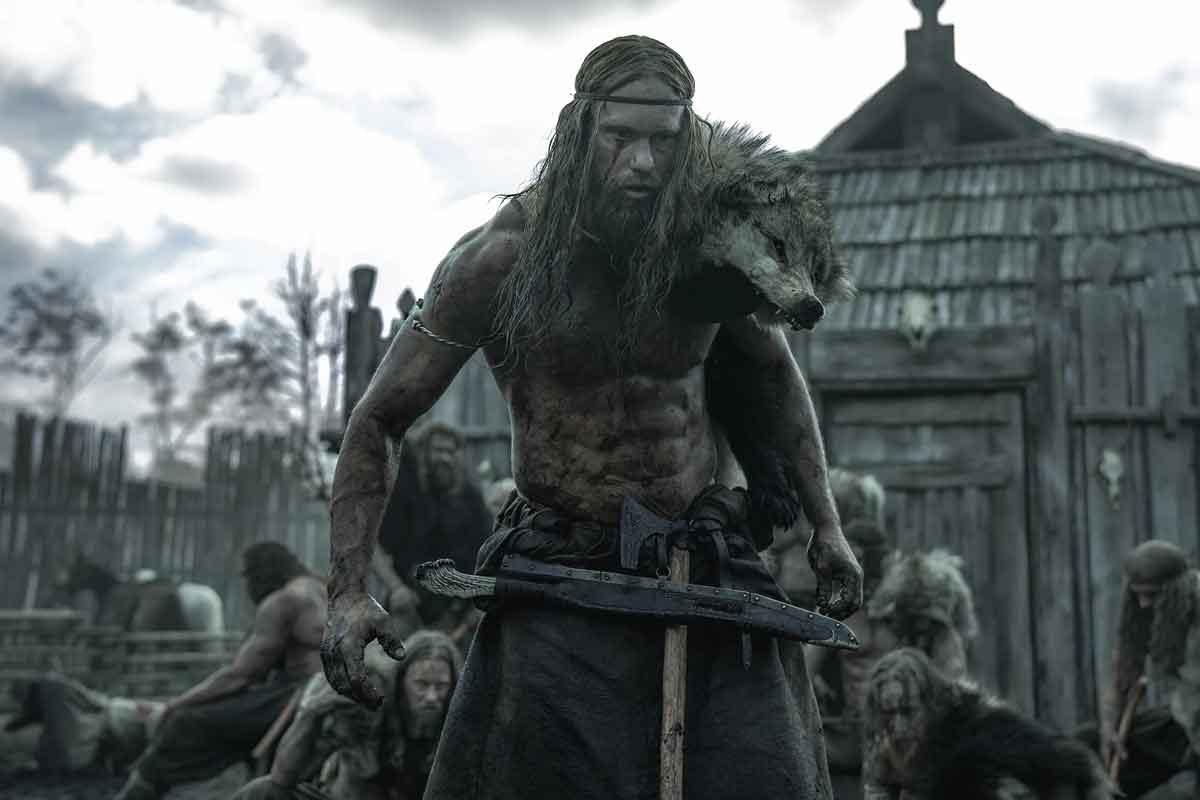
The bombast. The bloodshed. Robert Eggers’ The Northman is perhaps the most gripping sword-and-sandals historical epic since Gladiator (and also perhaps the best on-screen Hamlet since The Lion King). Based on a medieval Scandinavian legend that inspired Shakespeare to devise his play about the perseverating Danish prince, the film tells the story of Amleth, a Viking heir who seeks revenge against the man who murdered his father, usurped his throne, and absconded with his mother. Awards season is abuzz with actors like Colin Farrell and Brendan Fraser for their searing dramatic performances, but I can’t think of an actor who committed to their role quite like Alexander Skarsgård, who sheds his coldblooded heartthrob persona to play a man who aches with ferocity. This movie fucks.
4. Turning Red (Domee Shi)

Never did I imagine Disney, an Infantilism-Industrial Complex all unto itself, would ever produce a film metaphorizing periods. But here we are. Domee Shi’s Turning Red is the funniest Pixar comedy in a decade and centers on Mei Lee, a Chinese-Canadian tween living in 2002 Toronto. As Mei inches toward puberty –– obsessing over boy bands, sketching eroticized mer-dudes––she discovers that all the women in her family are destined to poof into giant red pandas at their first flush of anger unless they learn how to control it. Deliciously, Mei learns to weaponize this new gift to her social advantage. Relying on rapid editing, a warm, vibrant palette, and hilariously manic sight gags paying homage to anime and Looney Tunes alike, Turning Red’s visual style intentionally deviates from Pixar’s more typical dignified grandiosity. This is puberty, baby.
3. You Won’t Be Alone (Goran Stolevski)
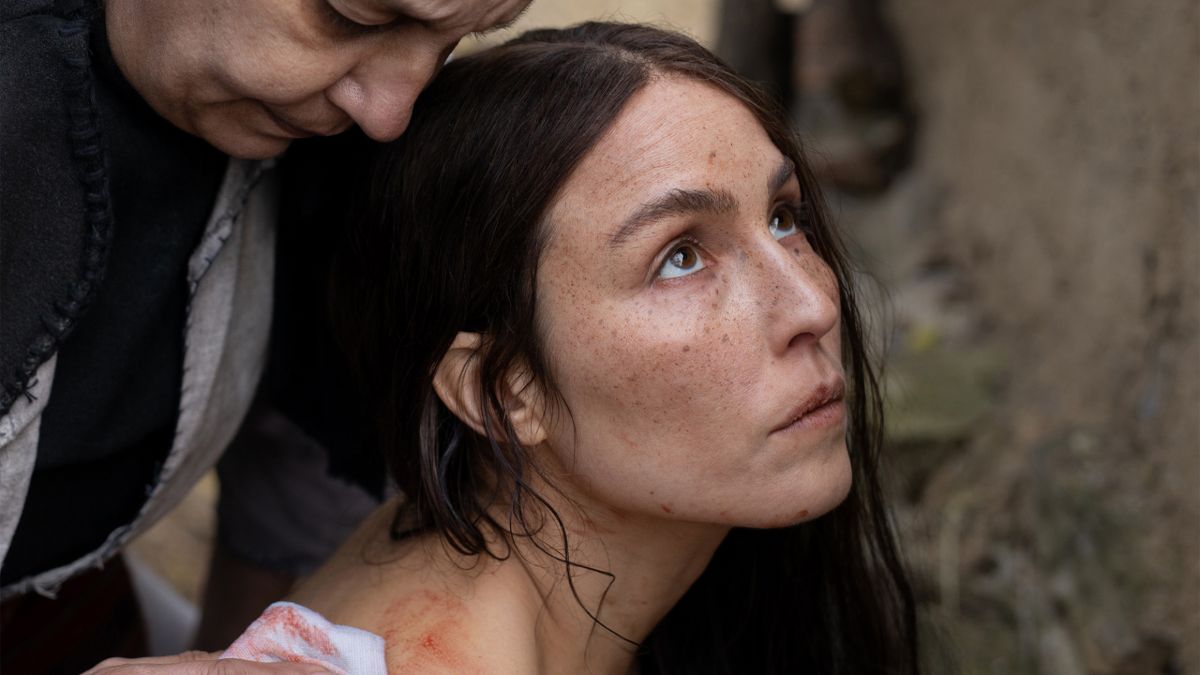
“The Macedonian witch movie!” I screamed to all who would listen. Goran Stolevski’s meditative horror-fable You Won’t Be Alone glides along with the poetic grace of a Terrence Malick drama, but with more gory transmogrification. In the 19th century, a scarred witch of legend selects a peasant’s baby to turn into a witch, too, and serve as her young companion. The infant’s mother hides her away, but sixteen years later, the “Wolf-Eateress” comes to collect what she is owed. They roam the forests together, but the girl rejects her fate and is eventually abandoned by her angry guardian. Experiencing society for the first time in her life, the silent girl kills and shapeshifts into different people several times over, learning what it means to finally be human.
2. All the Beauty and the Bloodshed (Laura Poitras)
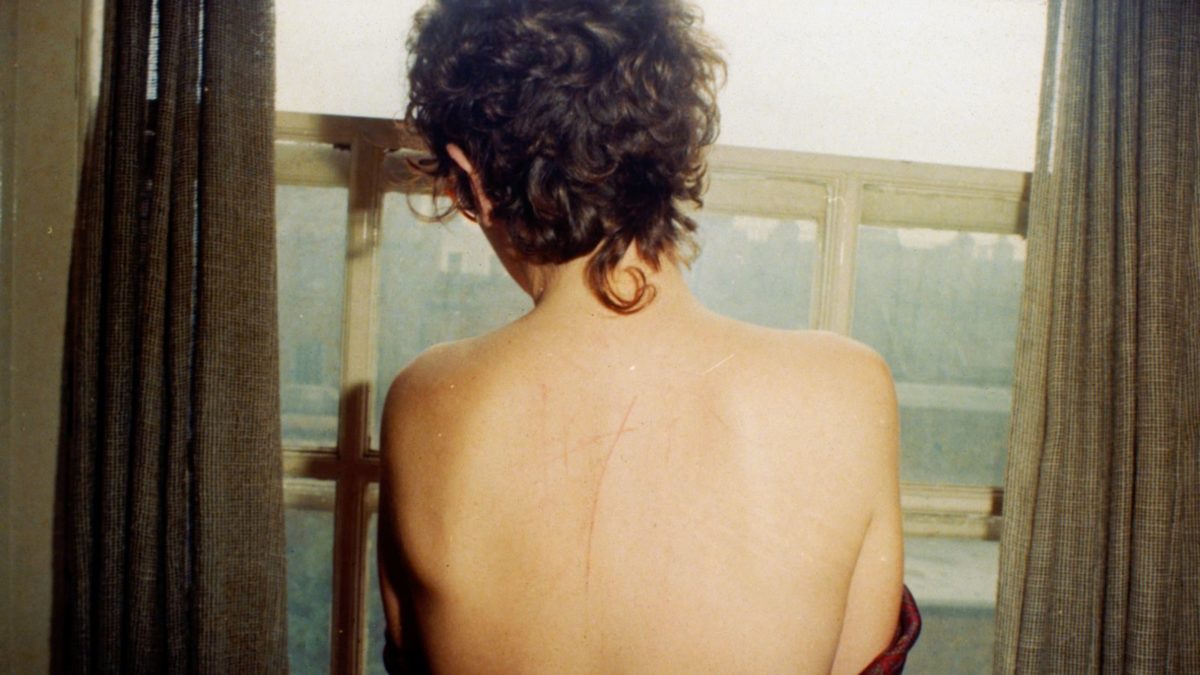
Countercultural photographer and anti-opioid activist Nan Goldin has spent her career turning the camera on herself and her loved ones to showcase the everyday existences of people living on the margins. Smart phones and social media have rendered such acts de rigueur today, but in the 1970s and 1980s, Goldin’s artistic innovations were intentional––radical. Laura Poitras’ stunning documentary All the Beauty and the Bloodshed explores Goldin’s work and the demise of the Sackler pharmaceutical empire. She digs into the dark heart of Goldin’s suburban childhood, where her middle-class parents, in an effort to keep up with the Joneses, pathologized their queer older daughter in ways that led to her suicide. Goldin retreated into the art world as an escape, and her experiences as a queer woman, a sex worker, and a substance abuser all influenced her efforts documenting gay and transgender communities before, during, and after the AIDS crisis. Poitras’ storytelling about a storyteller is spectacular.
1. TÁR (Todd Field)
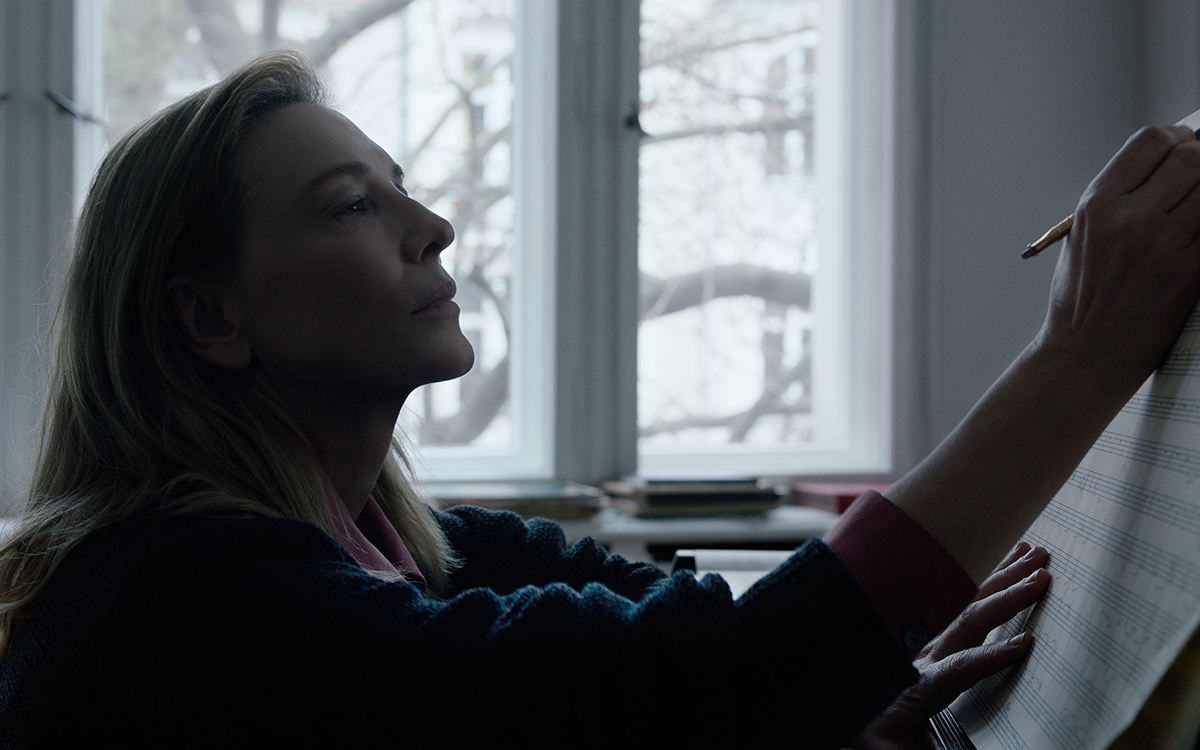
TÁR is a psychological drama about what it means to painstakingly craft a persona from nothing. I learned this within the first few moments of the film, when Lydia Tár (Cate Blanchett), the most famous and respected female music composer and conductor in the entire world, monologues with intellectual precision while she’s being interviewed on stage by a New Yorker columnist. Too much precision, in fact. Yes, her passion was once real, but this Queens-to-Harvard girl, birthname Linda, has spent her entire life sculpting and re-sculpting her love for classical music, chipping away at it until it’s merely her means to status and power. In the process, she’s become a serial sexual abuser who uses her position to groom young musicians. When her misconduct comes to light and the monied European life she’s built for herself crumbles, the viewer must decide whether her eventual fate is, in fact, a fall from grace or an opportunity to reconnect with the music.
